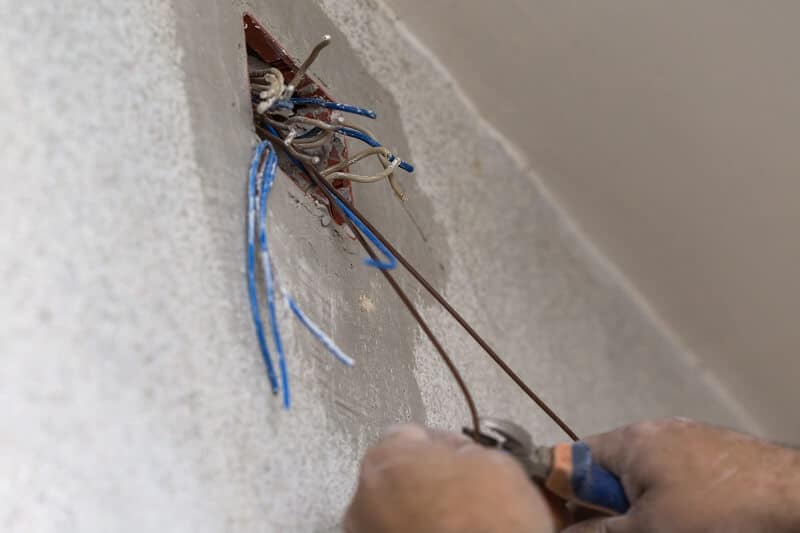 How can you be sure that a house rewire is necessary? The wires in your house deliver the electricity throughout your entire home so you need to be sure that you get advice from the experts. Fortunately, there are few things you can check out before you call any electricians out to your house.
How can you be sure that a house rewire is necessary? The wires in your house deliver the electricity throughout your entire home so you need to be sure that you get advice from the experts. Fortunately, there are few things you can check out before you call any electricians out to your house.
The first thing to consider is the age of your home and electrical panel. If your house is over 50 years old, there’s a good chance it needs to be rewired. At the very least you should have the wiring in your home inspected by a professional. Homes over 50 years old may contain knob-and-tube or aluminum wiring. These types of wiring are outdated and can potentially pose extreme dangers.
Other warning signs that you may need a whole house electrical rewire include:
- Circuit breakers that are tripping frequently
- Blown fuses
- A burning smell that won’t go away
- Sizzling sounds without apparent sources
- Outlets or switches that look discolored or charred
If you are noticing any of the signs above, it’s probably a good time to call your electrician to schedule an inspection. Many electricians are happy to provide customers with whole house rewire estimates. This can be a very large investment so it’s important to call around to find multiple estimates for the job.
It is fortunate, though, that rewiring a home is usually a once-in-a-generation expense when done right. It’s important to weigh the risks versus the expenses when considering this project. Improper or outdated wiring can cause many issues including fires so it’s a job that shouldn’t be put off too long. A report by the US Fire Administration states that from 2010 to 2014, 45,210 home structure fires involved electrical malfunctions or failure. Annually this led to 420 deaths and over 1,300 injuries. These fires also caused $1.4 billion in property damages.
House Rewire: Things to Consider
You might be thinking, ‘what is a full house rewire?’ Well, it’s much like it sounds. Rewiring a home involved removing as many of the old wires as possible to make room for wiring that is not only new but also up to date. Non-metallic wire, or Romex, is used because it is generally safe and easier to work with. It won’t get hot when it is surrounded by insulation.
The new wiring can be installed by tearing out walls to run the new wires and then sealing the new installation behind drywall. This can be very expensive and may take a bit of time to complete. The fewer walls that need cut the less the job will cost. If the wiring can be run through a crawlspace or attic this is ideal for keeping down the cost.
Another option electricians may choose is to take the wiring and fish it through the walls with rods and thin metal, called fish tape. This is usually used in older homes to keep up the integrity. Instead of tearing down walls, small holes are made and then patched up. Using this method helps preserve the plaster walls.
When a house is being rewired, it is almost always recommended to also upgrade your panel. Older homes generally have a smaller capacity panel but when you rewire your home you’re allowing for more conveniences which might put more strain on your panel. If your home has a 60 amp panel, it’s a good idea to update it to 100 amp. This will allow you to bring more comfort into your home without the worry of tripping circuits.
Whether you need a new light fixture installed or are getting your whole home rewired, choosing the right electrician is very important. Don’t just hire the cheapest person on the market – be sure to do research and get multiple bids from professionals. In the end, it will be worth it to know that your house rewire job was done safely and correctly.
You local electrician at The Electric Connection can perform whole house rewires with ease. Our technicians have the expertise and experience necessary to get the job done correctly and quickly. Click here to learn more about our house rewire services or give us a call at (818) 446-0888.




